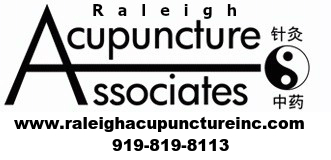
In our modern health-landscape, exploring how ancient healing methods fit into rigorous scientific frameworks is more important than ever. In this post, we dive into the science of acupuncture, examining how Eastern traditions and Western medicine converge—or diverge—and what current research tells us about efficacy, mechanisms, and practical use. By understanding the data, you’ll be better positioned to decide whether acupuncture is right for you, and how it might integrate into your health plan.
What Is the Science of Acupuncture and Why It Matters
The phrase the science of acupuncture points to two major questions: (1) Does acupuncture work in measurable, reproducible ways? (2) How might it work, physiologically? Historically, acupuncture has been grounded in Eastern concepts such as qi (energy) and meridians. From a Western view, there’s been skepticism. However, recent decades have seen a growing body of research attempting to bring acupuncture into evidence-based frameworks.
For example, a landmark individual patient meta-analysis published in The Journal of Pain (2018) reviewed data from over 20,000 participants across 39 high-quality randomized controlled trials. The results showed that acupuncture was significantly more effective than both sham acupuncture and no acupuncture for treating chronic pain conditions—including osteoarthritis, back and neck pain, shoulder pain, and chronic headaches. The researchers concluded that these effects were not solely due to placebo and that benefits were long-term, persisting for at least 12 months after treatment. (Vickers et al., The Journal of Pain, 2018)
This large-scale analysis has become a cornerstone of the science of acupuncture, offering robust evidence that acupuncture provides measurable, lasting relief for many chronic pain conditions and deserves its place within modern, evidence-based healthcare.
[Citation: Vickers AJ, Vertosick EA, Lewith G, MacPherson H, Foster NE, Sherman KJ, Irnich D, Witt CM, Linde K; Acupuncture Trialists’ Collaboration. Acupuncture for Chronic Pain: Update of an Individual Patient Data Meta-Analysis. The Journal of Pain. 2018 May;19(5):455-474. PubMed ID: 29198932]
Evidence of Efficacy: What the Research Shows
When exploring the science of acupuncture, it’s essential to look at what the clinical trials actually show.
One of the most influential modern studies on acupuncture for chronic pain was published in JAMA Internal Medicine in 2017. This randomized clinical trial included 638 adults with chronic low back pain, who were assigned to one of four groups: individualized acupuncture, standardized acupuncture, simulated (sham) acupuncture, or usual care. After 8 and 26 weeks, all three acupuncture groups showed significantly greater improvements in back-related function and pain intensity compared to usual care alone, measured by the Roland-Morris Disability Questionnaire (RMDQ). Importantly, the benefits persisted at 52 weeks, and adverse events were rare and mild. These findings demonstrated that acupuncture can provide durable, clinically meaningful relief for chronic low back pain—supporting its integration into standard pain-management programs.
[Citation: Cherkin DC, Sherman KJ, Avins AL, Erro JH, Ichikawa L, Barlow WE, Delaney K, Hawkes R, Hamilton L, Pressman A, Khalsa PS, Deyo RA. A Randomized Trial Comparing Acupuncture, Simulated Acupuncture, and Usual Care for Chronic Low Back Pain. JAMA Internal Medicine. 2017;177(4):490-497. https://jamanetwork.com/journals/jamainternalmedicine/fullarticle/414934]
Mechanisms – How Does Acupuncture Work?
As part of the exploration of the science of acupuncture, understanding the underlying mechanisms is key. While traditional East-Asian medicine describes energy flows (qi) and meridians, Western research has proposed several plausible physiological pathways:
- Neurotransmitter and endorphin release: Needling may stimulate nerves, which in turn prompts the release of endorphins and other modulators of pain and inflammation.
- Sensory modulation: Stimulation of acupuncture points may alter pain-processing networks in the brain and spinal cord (neuroimaging supports some of this).
- Autonomic nervous system regulation: Some studies suggest acupuncture may influence heart rate variability, blood pressure regulation, and stress hormone activity. For example, a pilot trial in essential hypertension investigated metabolic improvements in acupuncture vs. sham groups.
- Local tissue effects: Increased blood flow, changes in local inflammatory mediators, or fascia/connective tissue responses may also play a role.
Although research into these mechanisms is still evolving, a growing body of evidence continues to strengthen our understanding of how acupuncture works. Each new study helps connect traditional Eastern wisdom with modern biomedical insight—bridging cultures and demonstrating that the science of acupuncture is both measurable and meaningful, not merely anecdotal.
Case Study: Applying the Science of Acupuncture in Practice
Let’s look at a practical example:
Patient Profile: 68-year-old female with 8 years of chronic low back pain, previously managed with NSAIDs and physical therapy with limited relief.
Intervention: She underwent 6 weeks of acupuncture (consisting of 6 sessions) in addition to her conventional care. Assessments using the RMDQ and pain intensity scales were taken at baseline, week 12, week 24, and week 52.
Outcome: Following treatment, she reported an 85% reduction in pain intensity, and her RMDQ score improved from 14 to 3. These improvements sustained at 12 months. She also reported improved sleep and reduced use of analgesic medications. These results mirror findings from the larger trial described above.
Interpretation: This case illustrates how, when applied properly, acupuncture can yield meaningful improvements in function and quality of life. It also emphasizes that improvement tends to be sustained. The practitioner and patient collaborated on combining acupuncture with lifestyle changes (stretching, core-stabilization, stress reduction), which aligns with integrated care models.
Integrating Research and Practice: A Bright Future for Acupuncture
The convergence of East and West requires a respectful synthesis: acknowledging the centuries-old wisdom of acupuncture while applying rigorous scientific methods. Here are some practical insights:
- Thoughtful application matters: Acupuncture is a powerful, evidence-based therapy with especially strong support for conditions such as chronic pain, osteoarthritis, migraine prevention, infertility, digestive problems, and autoimmune disease. Research continues to expand into other areas, and each new study broadens our understanding of its potential across diverse health concerns.
- Quality of research is improving: Earlier studies sometimes faced design limitations, but modern clinical trials—like the large-scale JAMA study on chronic low back pain—are setting new standards for rigor and reproducibility. This new generation of research is helping acupuncture gain recognition within mainstream medicine.
- Personalized, patient-centered care: Acupuncture thrives when tailored to the individual. Practitioners trained in both Traditional Chinese Medicine and evidence-based care can integrate acupuncture seamlessly with conventional treatments, offering patients a holistic, complementary approach to healing.
- Realistic outcomes, lasting benefits: As the science of acupuncture continues to grow, we now know that its benefits often go beyond symptom relief. Patients frequently report improved energy, better sleep, and greater emotional balance. Even when acupuncture doesn’t “cure” a condition outright, it consistently enhances quality of life and reduces dependence on medications—with an excellent safety record.
- Mechanistic insights are advancing: Ongoing research into neural pathways, inflammation control, and autonomic regulation is deepening our understanding of how acupuncture works at a biological level. Each new discovery strengthens acupuncture’s scientific foundation and helps refine treatment protocols for even greater effectiveness in the years ahead.
Next Steps
If you’re dealing with chronic pain, functional limitations, or simply curious about integrative wellness, consider exploring acupuncture as one evidence-based option. Partner with a licensed acupuncturist who has solid credentials, can communicate clearly about realistic outcomes, and collaborates with your broader health team. Ask about their experience with the specific condition you’re addressing.
Ready to take a step? Reach out today to schedule an appointment. Ask how acupuncture might fit into your personalized health strategy. Let’s embrace both the time-honored tradition and modern science together.
In summary, the journey of the science of acupuncture is ongoing—but promising. With growing high-quality research, valid mechanisms under investigation, and meaningful, sustainable outcomes for many patients, acupuncture is increasingly bridging East and West in practical and credible ways.
If you want to explore this topic further, read my post on Science Behind Acupuncture.
Book an appointment online or explore case and research studies with the links at the bottom of this page. Relief is possible, and we would be honored to help you take the first step toward lasting wellness.
About Raleigh Acupuncture
At Raleigh Acupuncture Associates, we are deeply committed to providing the highest quality professional acupuncture while being rooted in strong Judeo-Christian values of love, faith, kindness, and truth. We guide our practice with compassionate care, where each patient is treated with respect and dignity, regardless of their background, faith, or beliefs. We welcome people from all walks of life and strive to create a warm, inclusive environment promoting healing and holistic wellness. Our dedication to delivering exceptional acupuncture is paired with a genuine love for helping others, making our clinic a place where faith and professional medical care come together for the well-being of every patient.
Next Steps
BOOK NOW to schedule an appointment online.
Meet Our Practitioners (Video).
Learn about all the conditions we treat.
Focus Keyphrase: The Science of Acupuncture
Image generated with https://perchance.org/ai-text-to-image-generator

